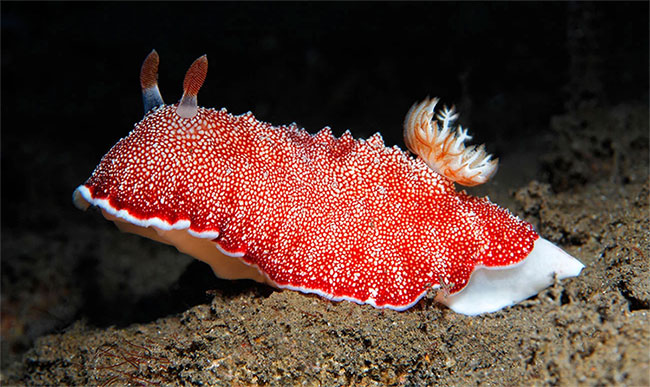Lazy animals are less likely to become extinct
The most energy-consuming species in everyday life will die faster than low-energy animals, according to evolutionary biologists.
Scientists studied nearly 300 mollusks living and dying in the Atlantic over the past 5 million years to find high levels of metabolism that determine which species will become extinct, according to the Guardian. The most energetic sea snails, sea slugs, mussels and scallops in everyday life are likely to die sooner than relatives using less energy, especially when they live in an ocean environment.

Species with low metabolic rate have higher survivability.(Photo: Alamy).
Although the causes of extinction are diverse and complex, the study published yesterday in the journal Proceedings of the Royal Society B discovered a new relationship that keeps the proportion of animals using energy to develop and maintain tissues. in the body with the time they exist on Earth. " The lower the metabolic rate, the higher the survivability of the species , " said Bruce Lieberman, evolutionary biology and biology professor at the University of Kansas, who led the study.
Scientists examined 299 species of gastropods such as snails and slugs, and bivalves including mussels and scallops living in the western Atlantic Ocean from the time of Upper Tan over 5 million years ago to now on. When the team calculated the metabolic rate of each species, they found that the energy of 178 extinct species used was significantly different from those of the living species today."The logical explanation is that slow or lazy species have lower demand for energy and food, so they can cope with difficult conditions , " Lieberman said.
Research can help conservationists better predict which species are more likely to become extinct when global climate change hinders food production. The next step is to determine whether metabolic processes play a role in the extinction rate of other animals, including terrestrial species.
- Solemnly for birds that are extinct by humans
- Mammoths and extinct animals are about to be revived
- Development technology revives extinct species?
- Regenerating extinct animals
- 10 animals make humans extinct if revived
- The mystery of laziness
- The evolution of animals does not keep pace with extinction
- 4 arguments for lazy people have been proved by science
- The reasons for extinction of animals are more difficult than we imagined
- Extinct animals have the opportunity to
- Tail pieces can help revitalize extinct bison 12,000 years
- List of the most lazy countries in the world, Vietnam where?
 Animal 'suffering' after hibernation
Animal 'suffering' after hibernation Why do goats climb well?
Why do goats climb well? Scientists were surprised to see chimpanzees eating turtles
Scientists were surprised to see chimpanzees eating turtles Giant catfish died deadly due to drought in Thailand
Giant catfish died deadly due to drought in Thailand